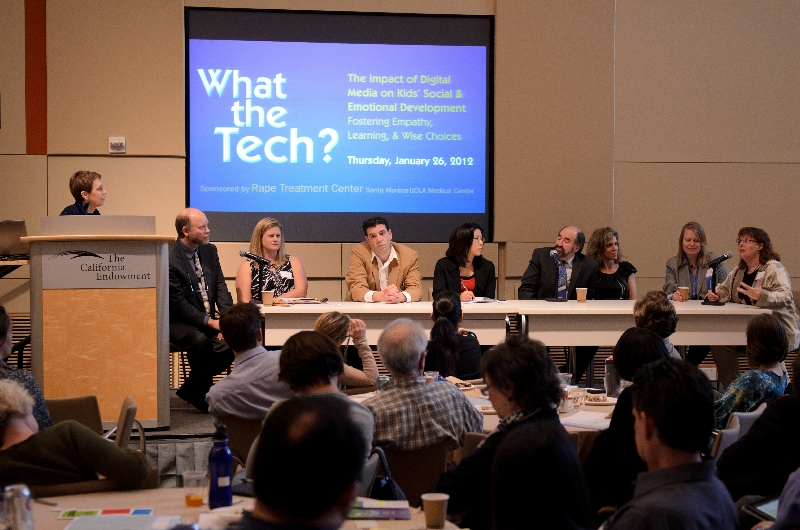Social media and technology are opening new ways for teens to connect.

The transition of teen culture to the virtual world was also a focus of the conference, as experts discussed strategies to help boys develop leadership skills and increase empathy through their online interactions. Digital media is changing the way youth witness and react to instances of harassment and violence, enabling them to hold their peers accountable for their actions.
“We’re no longer facing the traditional form of bullying. It’s not just happening on playgrounds, there are virtual peer cultures with norms that are shaped and reinforced online,” said Jackson Katz, founder of the Mentors in Violence Prevention Program at Northeastern University. “It’s time for adults to step up and engage boys at their level, holding them to a higher standard and leading by example, both online and off.”
As kids spend ever-increasing time in the digital world, the expert panelists challenge adults to change their perception on the untapped potential of digital media. Online games, social networks and mobile apps can bridge the barriers to education, emotional growth and wellbeing. By engaging with children online, parents and educators can help guide youth in their research and exploration of the external world, fostering positive development.

